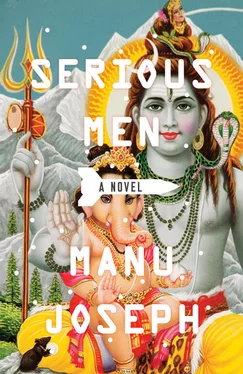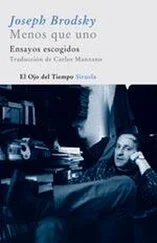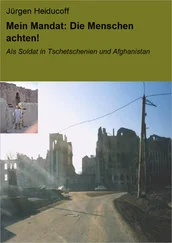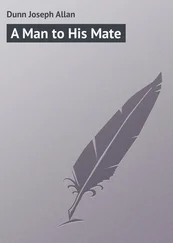‘Yours?’ Oparna enquired.
‘No. Is it yours?’
‘I don’t think so,’ she said. ‘Is there anyone with him?’
‘No.’
She pushed open the heavy door that once used to terrify her. She knew what she had to do. She could be a woman and wait for him to collapse, but she could not endure the game that she now realized she had been unknowingly playing for many months. Acharya lifted his enormous head and for a moment he looked as though he had found the Unified Theory by mistake. He looked down and appeared to study some material on the table. She sat on the chair facing him, crossed her legs, arched her body and looked at him fondly. He looked into her eyes and tried to understand her special glow.
He toyed with the paperweight and spoke of how the cryogenic sampler was still stuck in America. ‘We need to get the Ministry involved,’ he told the paperweight.
Ayyan Mani knew something had changed. He could see Oparna had arrived at a decision. And there was a force in her that morning, a calm arrogance that beautiful women usually had. He recognized it as her real face. The shadow she had pretended to be in this kingdom of men, in her long shapeless top and jeans, that subdued acceptance of all situations, he always knew was just a farce. He lifted his intrusive phone receiver and listened.
‘Contamination is a serious problem,’ Acharya was saying. ‘We have to ensure that there is no way the sampler can be contaminated before or after the mission. If it’s so difficult for the cryosampler to be a hundred per cent sterilized, imagine how vulnerable spaceships are to contamination. When we landed on the Moon or sent the rovers to Mars, we left Earth microbes there.’
‘Are you trying not to look at me?’ Oparna asked.
The insubordination of women, he would understand in time, is often a consequence of infatuation, but that morning her question registered as an anomaly. He answered nervously, feeling an unfamiliar excitement in his stomach, ‘What do you mean by that, Oparna?’
‘You can look at me as long as you want.’
‘I don’t understand your behaviour. It’s strange.’
‘Did you sleep last night?’ she asked.
‘How is that important?’
‘To the Cosmic Ancestry Theory? No it’s not important. Just felt like asking. Should everything always be important?’
‘No.’
‘I could not sleep,’ she said.
‘So?’
‘Because of you.’
‘I don’t understand what you are trying to say.’
Acharya’s mind went to a distant day in his childhood when he had seen, for the first time, a fish die. The final frantic palpitations of the fish was the condition of his heart right now. He toyed with the paperweight and through the silence that Oparna granted he heard faraway phones, stray horns, even crows and some orphan sounds he could not recognize. The silence approached a point after which it would cease to be part of the conversation and become a deafening diabolic force. But he did not offer to speak. Oparna got up to leave. The demented mirth of mischief and insolence had left her face. She walked to the door and looked at him with an affection that was at once hopeful and melancholic. Like light was both particle and wave.
After she left, in the sudden desolation of the room, he tried to understand the tumult inside himself. He could feel a strange nameless fear, but he was euphoric too. The mascot of real joy he had always imagined was a simple human smile, but now he suspected that a smile was actually very frivolous. The face of true deep joy had to be an impassive grimness.
He did not understand what had happened to her. She was wooing a fat old man. She must be ovulating. Men appeared attractive to women during that time, he had read. This would pass. Then he realized that he was afraid that it might pass.
His ascetic power of concentration deserted him. He tried to tear himself away from the haunting visions of her face. He forced himself to think of the Big Bang’s devotees, because their thoughts usually built a mad rage within him. But in the place of the old malice was love and pardon for all, and Oparna’s face, like a giant background spirit, appreciating his maturity. He tried to read Topolov’s Superman, but he wondered what she would think if she saw him with the violent underground comic. No matter what he tried to do, he realized, the face of Oparna ultimately appeared. In every frame she was there, like R.K. Laxman’s Common Man. He tried desperately to search for a distraction to abolish this distraction, but nothing could cure his fever.
Acharya decided to wander. He walked down the quiet lane from the Institute, through Navy Nagar and all the way to the Marine Drive. He stood on the broad promenade and looked at the turbulent sea. The sky had turned grey, the wind was strong and it tasted of salt. At a distance, down the curve of the promenade, the sea lashed against the wave breakers and exploded into mists.
He could see the monsoon on the bleak horizon. It was coming like a grey fog. On the road, there was a sort of panic in the evening traffic, as though there had been a morbid warning and everybody was fleeing. The wind became stronger and it blew visible dust, leaves, old newspapers and a forlorn blue kerchief. Then, the monsoon arrived. First as a drizzle. Some evening walkers switched from the haste of exercise to the very distinct haste of running for cover. Old women unfurled their umbrellas with a wisdom that did not have a clear face. It struck him, how complete, how final, an umbrella actually was. As a technology, it would not evolve any further.
The rains became a torrent now. Distant buildings across the bay were no longer visible. He saw an old man jog to a bus shelter, dribbling his swollen testicles on his frail thighs, like a footballer during a warm-up. The young, who had come for the rains, howled. They stood still in the rains. Some of them were compelled to spread their hands in a cinematic gesture because they felt odd just standing. Young girls worried if their blouses had become transparent. But they took the rains on their uplifted faces. They giggled and skipped and ran, as if they were in a sanitary-towel commercial.
Then, the rains were gone. The clouds cleared. A new light descended on the Marine Drive that made everything glow. Acharya thought his vision had improved. The evening walkers returned. Old couples were reunited. They went carefully on the wet tiles, wise in the knowledge that they had now reached an age when a slip could lead to death. They went slowly, four frail hands holding a single umbrella that was bending in the breeze. They must have been thinking of old monsoons, many monsoons. When they were young and strong, and the rains never seemed so grey.
When he reached home, fully soaked, his white full-sleeve shirt now transparent, his trousers resting precariously below his hips and held in place only by the grip of wetness, Lavanya put her hand on her head. ‘Who are you?’ she said. ‘Archimedes?’ As she dried him with a towel that felt very warm, he stared at her. She was so frail, the skin on her forehead so tired, her dyed hair scanty. He counted thirteen lines on her neck. What must a man do?
In the days that followed, he tried to ignore Oparna. That, he thought, was a solution. He would not summon her until she came to him without being invited, and though he felt a nervous excitement in his stomach every time he saw her, he would talk to her about the weather conditions over the launch facility in Hyderabad, or the optimum size of the balloon, or something like that. And she would just stare at him. ‘We need to lock the sourcing of the laminar air-flow cabinet,’ he would say. ‘We need to lock many things,’ she would tell him. And he would say, ‘I got a letter today. Cardiff has agreed to be part of the mission.’ And she would take mock offence and leave his room.
Читать дальше












